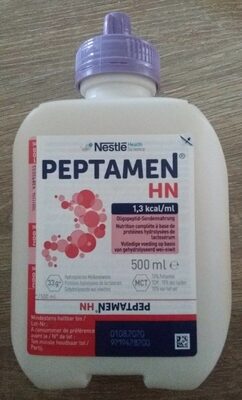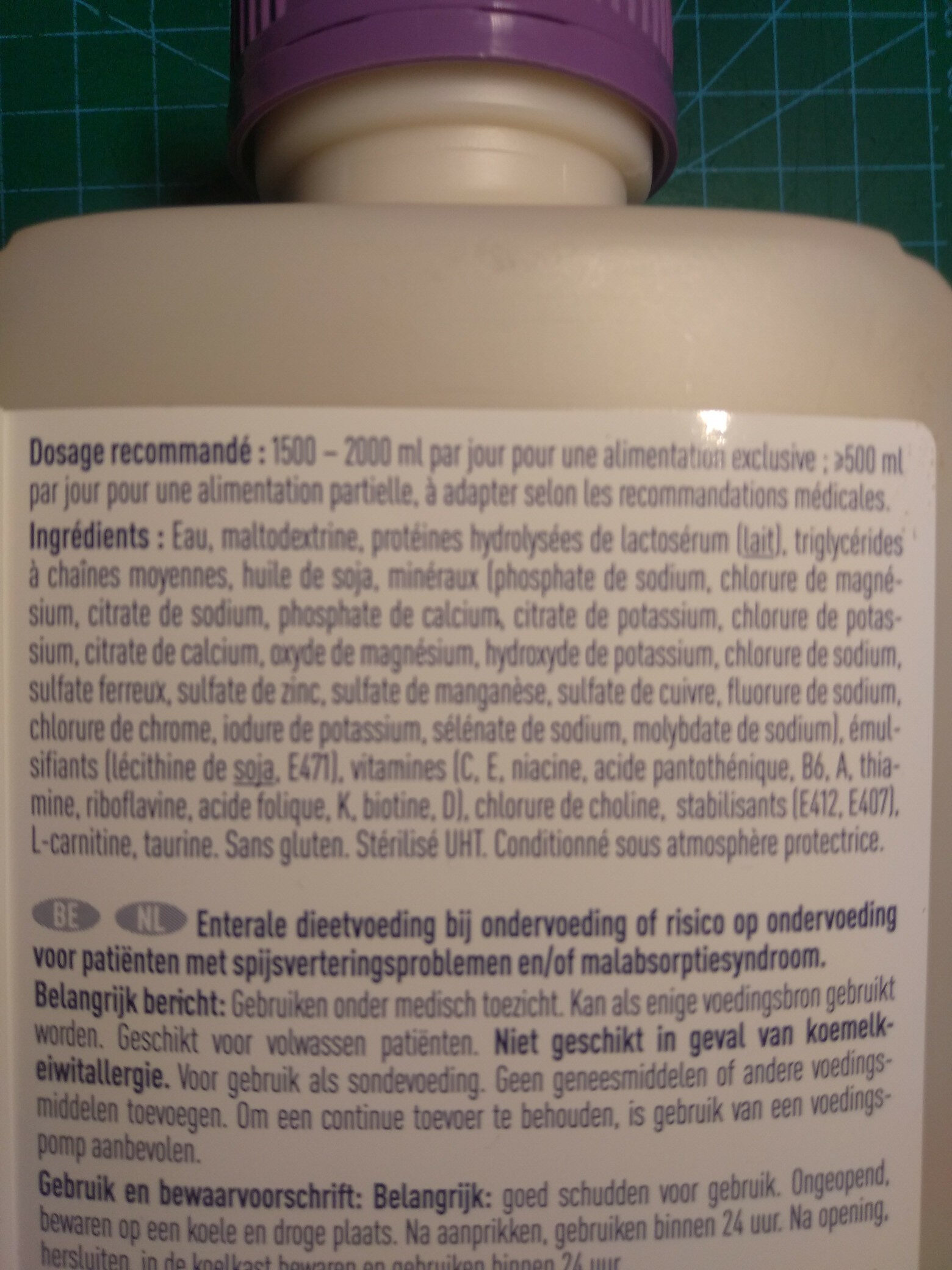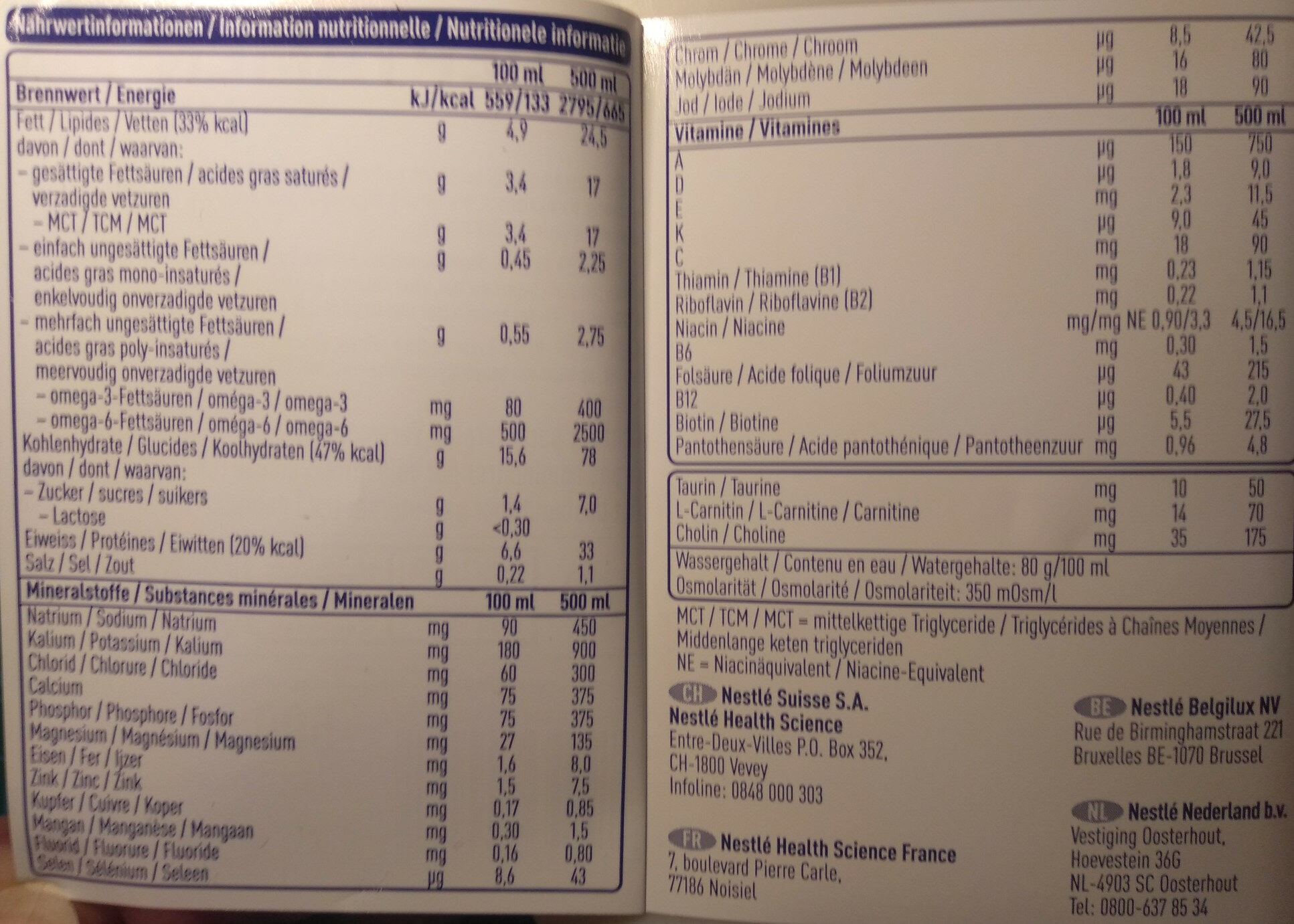Peptamen HN - Nestlé - 500ml
This product page is not complete. You can help to complete it by editing it and adding more data from the photos we have, or by taking more photos using the app for Android or iPhone/iPad. Thank you!
×
Barcode: 7613036700061 (EAN / EAN-13)
Quantity: 500ml
Brands: Nestlé
Categories: fr:Denrée alimentaire destinée à des fins médicales spéciales, fr:Hyperprotéinée, fr:Hyperénergétique, fr:Nutritionnellement complète, fr:Riche en TCM pour nutrition entérale., fr:À base de protéines hydrolysées de lactosérum
Labels, certifications, awards:
No gluten, Triman
Countries where sold: France
Matching with your preferences
Report a problem
Data sources
Product added on by kiliweb
Last edit of product page on by randy22.
Product page also edited by danizavtz, openfoodfacts-contributors, yeye, yuka.RnJrdUw1Z0xtYUVMZ2NSZ3dnSGVwOGw3NDdDa2NHZXRFc3hBSUE9PQ.











